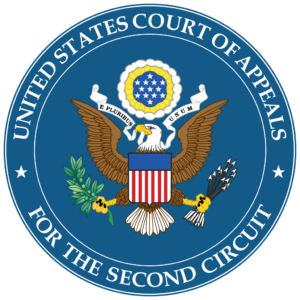ACLU Wins Significant Transparency Victory With Clinic Support
Cyberlaw Clinic » Blog 2023-01-27
 Today, the United States Court of Appeals for the Second Circuit issued an opinion in ACLU v. ICE (No. 21-1233) requiring federal agencies to preserve relational information when producing public records from a database. The opinion is an important victory for government transparency in an age where government records are increasingly stored in structured datasets. The Cyberlaw Clinic is honored to have represented the Center for Investigative Reporting, the Media Law Resource Center, and the MuckRock Foundation as amici curiae in this appeal.
Today, the United States Court of Appeals for the Second Circuit issued an opinion in ACLU v. ICE (No. 21-1233) requiring federal agencies to preserve relational information when producing public records from a database. The opinion is an important victory for government transparency in an age where government records are increasingly stored in structured datasets. The Cyberlaw Clinic is honored to have represented the Center for Investigative Reporting, the Media Law Resource Center, and the MuckRock Foundation as amici curiae in this appeal.
The case revolved around the ACLU’s FOIA request for information from ICE’s immigration enforcement databases. These relational databases are structured using individuals’ Alien Numbers, or A-numbers, as the primary key for many tables. Because A-numbers are exempt under the FOIA, ICE produce the content of the tables but redacted the only information tying them together. The ACLU requested the ICE replace the A-numbers with non-identifying keys, but ICE refused, arguing that this would constitute creation of a new record and thus go beyond the scope of the FOIA. The ACLU sued, but the Northern District of New York granted summary judgment in favor of ICE.
In its 40-page opinion, the Second Circuit reversed the judgment of the district court, holding that “the substitution of Unique IDs for A-Numbers does not create any new agency records and is a reasonable step to shield the exempt content of A-Numbers while preserving the function necessary to afford public access to non-exempt records . . . .” In reaching this conclusion, the court considered the purpose of the FOIA in fostering public transparency, the history of the E-FOIA amendments, the general rule in favor of segregating exempt material, and the minimal burden imposed on the agency. The court further held that substitution of unique identifiers would not require creation of new records because doing so would not change the substantive content of the record and would not require any analysis, research, or judgment by the agency–an argument advanced in the media organizations’ amicus brief. The court reserved the question of whether relational data is, itself, a record subject to the FOIA.
The Second Circuit reversed the district court’s grant of summary judgment and remanded with instructions for further proceedings. The clear mandate from the court of appeals that “FOIA’s broad disclosure policy obligates the agency to substitute a different code in order to afford the public non-exempt records in the same manner as they are available to the agency” means crucial information will be available to advocates, reporters, and researchers seeking to address the harms of ICE’s detention and removal processes. In addition, the opinion provides a clear roadmap for agencies seeking to comply with their statutory obligation to produce records in response to future requests.
The media organizations’ amicus brief, drafted by Clinical Instructor Mason Kortz, represents the Clinic’s third foray into the topic of FOIA access to government data. It builds on arguments made in prior Clinic briefs in CIR v. DOJ (authored by Spring 2019 students Alena Farber, Ariel Hoffman, and LeHeng Li) and Everytown v. ATF (authored by Spring 2020 students Sarah Alawi, Stephany Bai, and Lauren Yonkoski). The Clinic is grateful to these students for their outstanding work, as well as to our clients for their engagement and participation throughout the drafting process. Today’s decision is a great example of how clinical work can advance the law in favor of social justice.